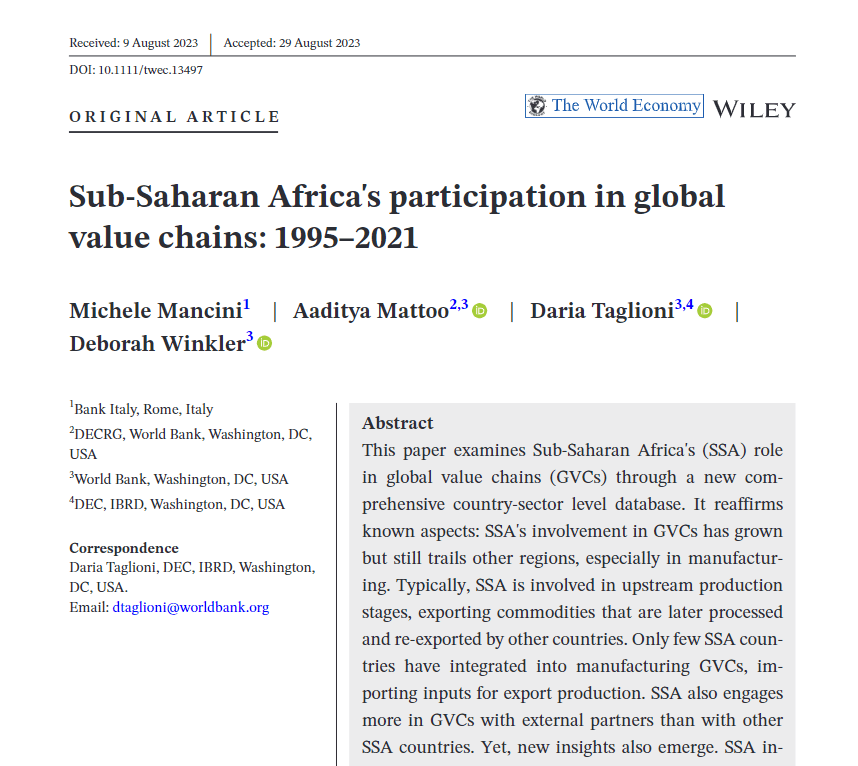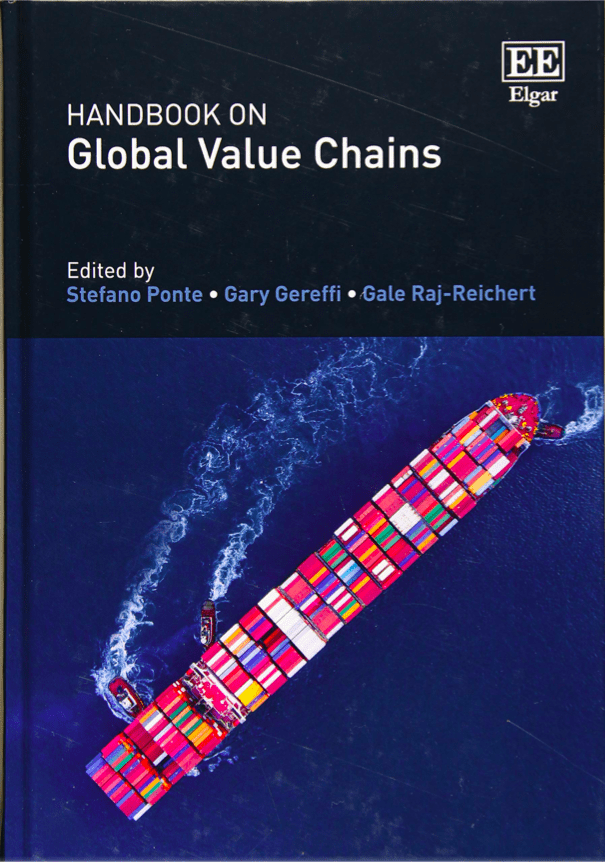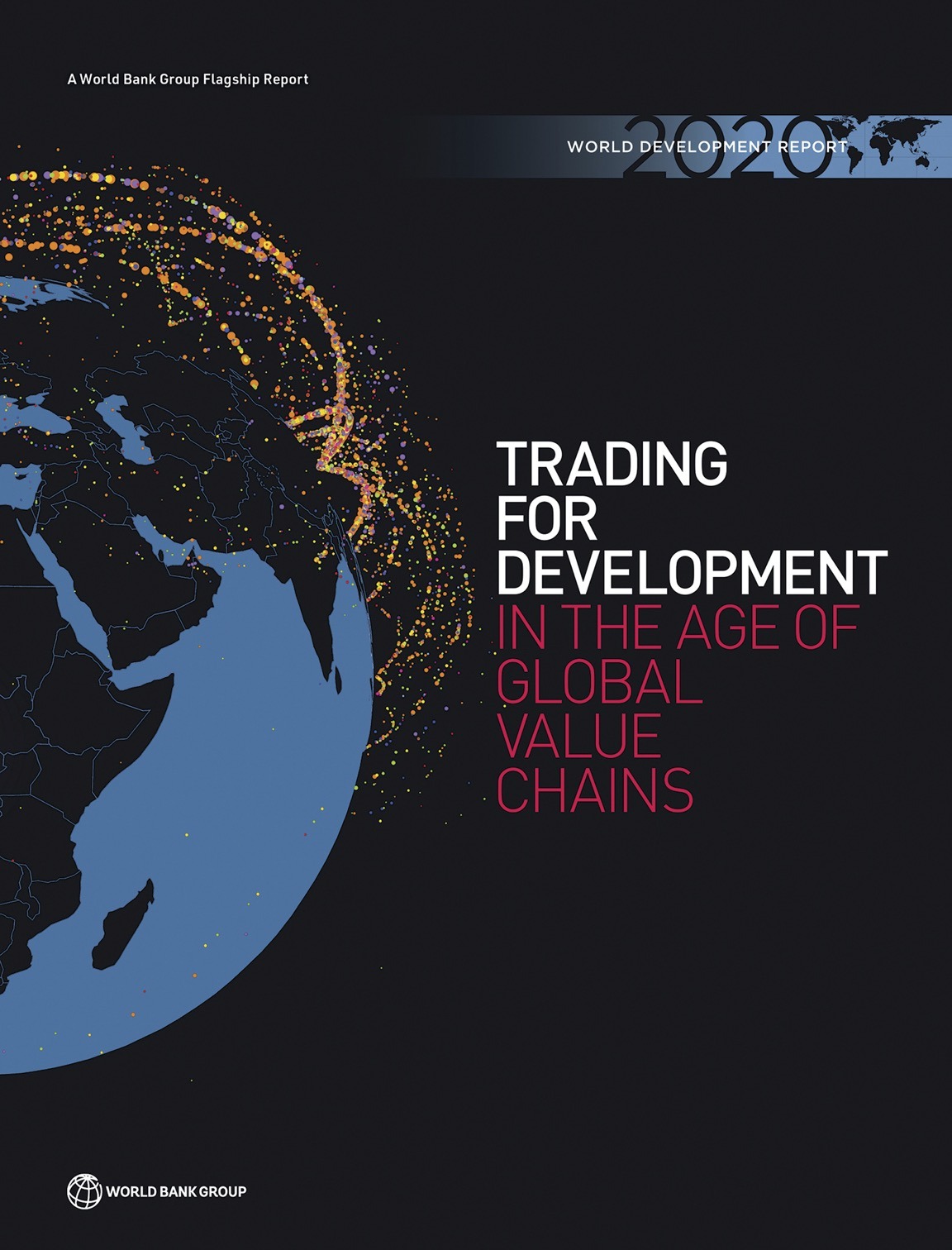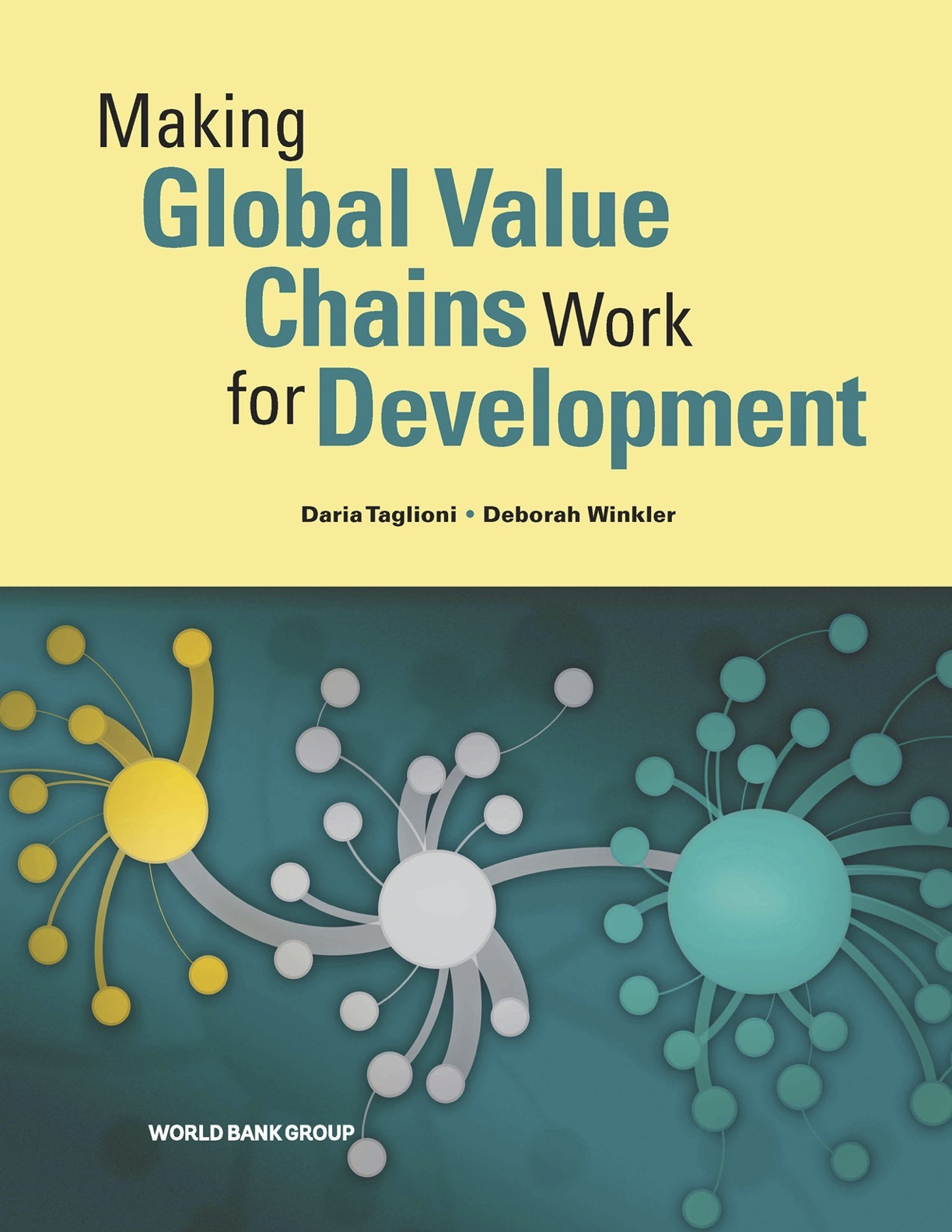︎

Daria Taglioni
World Bank
Daria Taglioni is Research Manager in the Development Research Group at the World Bank and has recently been Team-Task Lead for the World Development Report 2020 on global value chains. Previously, she worked as Senior Economist at the European Central Bank (ECB) and as Economist at the Organisation for Economic Cooperation and Development (OECD). She received her Ph.D. in International Economics from the Graduate Institute, Geneva.
MORE ABOUT DARIA TAGLIONI >Aug 19, 2023
Michele Mancini, Aaditya Mattoo, Daria Taglioni, Debora Winkler
Sub‐Saharan Africa’s participation in global value chains: 1995–2021
This paper examines Sub-Saharan Africa's (SSA) role in global value chains (GVCs) through a new comprehensive country-sector level database. It reaffirms known aspects: SSA's involvement in GVCs has grown but still trails other regions, especially in manufacturing. Typically, SSA is involv...

Jan 1, 2019
Victor Stolzenburg, Daria Taglioni, Deborah Winkler
Economic upgrading through global value chain participation: which policies increase the value-added gains?
The emergence of global value chains has opened up new ways to achieve development and industrialization. However, new evidence shows that not all countries have gained from participating in global value chains, and that country-specific characteristics matter for economic upgrading in global value ...

Jan 1, 2019
World Bank
World Development Report 2020: Trading for Development in the Age of Global Value Chains

Jan 1, 2016
Taglioni, D.; Winkler, D.
Making Global Value Chains Work for Development
Economic, technological, and political shifts as well as changing business strategies have driven firms to unbundle production processes and disperse them across countries. Thanks to these changes, developing countries can now increase their participation in global value chains (GVCs) and thus beco...

